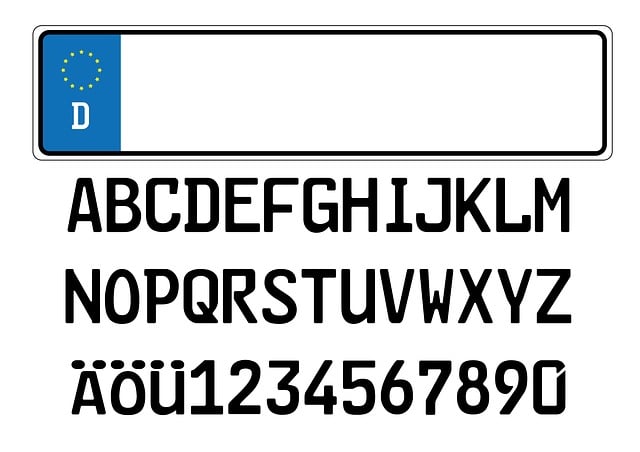Licenses and Permits UK Translation Services: A Comprehensive Guide
Introduction
In the United Kingdom, the translation services sector is pivotal in facilitating communication across linguistic barriers. With a diverse population and a global economy that increasingly relies on cross-border interactions, the role of licensed and permitted translation services has never been more significant. This article delves into the intricacies of these services, their impact on various sectors, and the regulatory framework governing them. We will explore the economic, technological, and policy dimensions that shape this field, as well as the challenges it faces and the future prospects that lie ahead.
Understanding Licenses-and-Permits-UK Translation Services
Licenses and permits for UK translation services are essential for ensuring quality, accuracy, and professional integrity within the industry. These licenses are granted by regulatory bodies after stringent assessments of a service provider’s qualifications, expertise, and adherence to ethical standards. Permits, on the other hand, may be required to operate legally in specific jurisdictions or sectors.
The core components of UK translation services include:
- Qualified Translators: Professionals who are native speakers of both the source and target languages.
- Accurate Translation: Ensuring that translations convey the exact meaning as the original document.
- Confidentiality: Protecting sensitive information throughout the translation process.
- Certification and Notarization: Legalizing translations so they are recognized by government bodies and institutions.
Historically, these services have evolved from simple document translation to encompass a wide array of specialized fields such as legal, medical, technical, and financial translations.
Global Impact and Trends
The global impact of UK translation services is profound, with translation being an integral part of international diplomacy, trade, culture exchange, and information dissemination. Key trends shaping the trajectory of these services include:
- Digitalization: The shift towards digital content necessitates advanced translation technologies.
- Globalization: As businesses expand globally, there is an increased need for multilingual communication.
- Cultural Sensitivity: Translations must be culturally relevant and contextually appropriate.
- Emerging Languages: The rise of lesser-spoken languages creates new demands for specialized translators.
Economic Considerations
The economic aspects of UK translation services are multifaceted, influencing various sectors such as finance, healthcare, and law. Market dynamics are driven by the demand for multilingual services in a globalized economy. Investment patterns indicate a growing interest in technology-driven solutions for translation, including machine learning and artificial intelligence. These economic systems rely on licensed and permitted services to facilitate trade agreements, legal proceedings, and international collaborations.
Technological Advancements
Technology has revolutionized the field of translation services. Significant advancements include:
- Machine Translation: Software that translates text or speech from one language to another.
- Translation Memory Software: Tools that store previously translated content to increase efficiency and consistency.
- Neural Machine Translation: An advanced form of machine translation that produces more natural and accurate translations.
- Natural Language Processing (NLP): Techniques that help computers understand, interpret, and generate human language.
The future potential of these technologies promises even more sophisticated translation services, with real-time, context-aware, and possibly multilingual AI assistants becoming the norm.
Policy and Regulation
The UK’s policy and regulatory framework for translation services are outlined in various legislations, including:
- The Official Languages (Scotland) Act 2003: Aimed at promoting and supporting the use of Gaelic and Scots.
- The European Union’s Directive on the Legal Status of Public Documents: Influences the recognition of legal documents across EU member states.
- Data Protection Act 2018: Ensures that personal data is handled lawfully, fairly, transparently, and for a specified purpose.
These regulations are crucial for maintaining standards and protecting public interests.
Challenges and Criticisms
The translation services sector faces several challenges, including:
- Quality Control: Ensuring the accuracy and reliability of translations in an increasingly automated landscape.
- Cultural Misinterpretation: Avoiding misrepresentation of cultural nuances in translations.
- Regulatory Compliance: Navigating complex legal requirements across different jurisdictions.
Strategies to overcome these issues involve the integration of advanced technologies with human expertise, continuous professional development, and collaboration with regulatory bodies.
Case Studies
Several case studies exemplify successful applications of UK translation services:
- Pharmaceutical Translations: Ensuring that medical documentation is accurate and compliant across different regions.
- Legal Document Translation: Facilitating international trade by providing legally binding translations for contracts and agreements.
- Tech Industry Localization: Adapting software and applications to cater to non-English speaking markets.
Future Prospects
The future of UK translation services is ripe with opportunities and challenges. The rise of multilingual AI, the proliferation of digital content, and the increasing complexity of global interactions all point towards a dynamic and evolving industry. As technology advances, ethical considerations, such as privacy and data security, will become ever more critical. The sector’s resilience to economic fluctuations and its ability to adapt to new demands will determine its success in the years to come.
In conclusion, UK translation services are a vital component of the global communication landscape. They bridge cultural and linguistic barriers, facilitate international commerce, and contribute to the exchange of knowledge and ideas. By navigating the complexities of licensing, regulation, and technology, these services will continue to play a pivotal role in an increasingly interconnected world.
Professional Licenses and Permits UK translation services are vital for legal compliance and accuracy in a complex regulatory landscape. Qualified translators with industry expertise and cultural sensitivity ensure precise translations, preventing co…….
In the UK, accurate translations of licenses and permits, including driving licenses, work visas, business permits, and environmental permits, are vital for individuals and organizations to navigate legal requirements. Professional Licenses and Permi…….
Choosing the right Licenses and Permits UK translation services is crucial for navigating complex application processes. Reputable services employ native legal experts, advanced technology, and strict quality control to ensure precise translations, a…….
Understanding UK licensing requirements is crucial for legal operation. Sector-specific rules demand accurate translation of licenses and permits by specialized services. UK translation services need specific Licenses and Permits, focusing on precisi…….
Navigating the UK’s licensing landscape demands precise documentation, making reliable translations paramount. This article guides you through the intricate process, from understanding stringent UK licensing requirements to selecting top-tier transla…….
Non-native speakers and international businesses seeking to navigate the UK's licensing landscape face challenges due to language barriers and stringent requirements. Certified translation services are crucial for overcoming these obstacles, ens…….
Navigating UK licensing requires certified translations for non-residents to ensure legal compliance and avoid delays. Specialized UK translation services are crucial for accurate interpretations of licenses, permits, and paperwork, especially in hea…….
In the UK, accurate translations of licenses and permits are crucial for business expansion, international trade, and professional development. Reputable translation services employ skilled linguists knowledgeable in legal terminology to provide prec…….
In the UK, accurate and timely translations of licenses and permits are vital for both personal and professional matters, preventing disruptions, cost overruns, and legal complications. Top-tier Licenses and Permits UK translation services employ exp…….
In the UK, professional Licenses and Permits UK translation services are essential for non-English speakers to navigate legal requirements accurately. These services ensure understanding of rights and obligations, comply with regulatory landscapes, a…….









